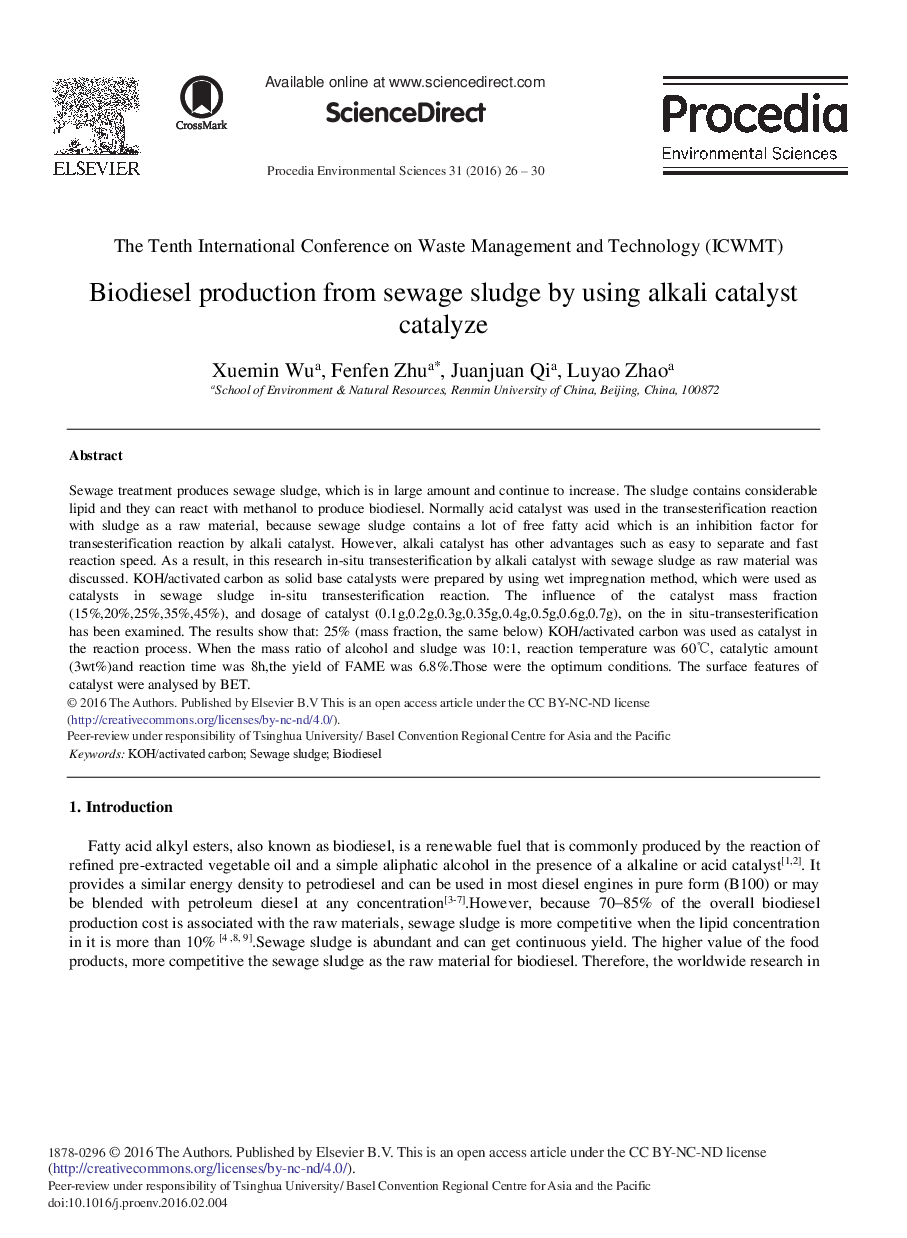| Article ID | Journal | Published Year | Pages | File Type |
|---|---|---|---|---|
| 4401516 | Procedia Environmental Sciences | 2016 | 5 Pages |
Sewage treatment produces sewage sludge, which is in large amount and continue to increase. The sludge contains considerable lipid and they can react with methanol to produce biodiesel. Normally acid catalyst was used in the transesterification reaction with sludge as a raw material, because sewage sludge contains a lot of free fatty acid which is an inhibition factor for transesterification reaction by alkali catalyst. However, alkali catalyst has other advantages such as easy to separate and fast reaction speed. As a result, in this research in-situ transesterification by alkali catalyst with sewage sludge as raw material was discussed. KOH/activated carbon as solid base catalysts were prepared by using wet impregnation method, which were used as catalysts in sewage sludge in-situ transesterification reaction. The influence of the catalyst mass fraction (15%,20%,25%,35%,45%), and dosage of catalyst (0.1g,0.2g,0.3g,0.35g,0.4g,0.5g,0.6g,0.7g), on the in situ-transesterification has been examined. The results show that: 25% (mass fraction, the same below) KOH/activated carbon was used as catalyst in the reaction process. When the mass ratio of alcohol and sludge was 10:1, reaction temperature was 60°C, catalytic amount (3wt%)and reaction time was 8h,the yield of FAME was 6.8%. Those were the optimum conditions. The surface features of catalyst were analysed by BET.
